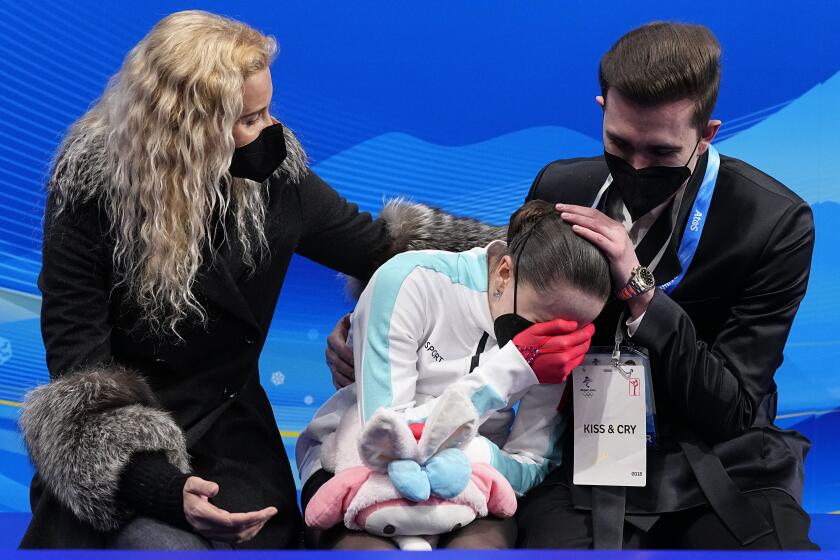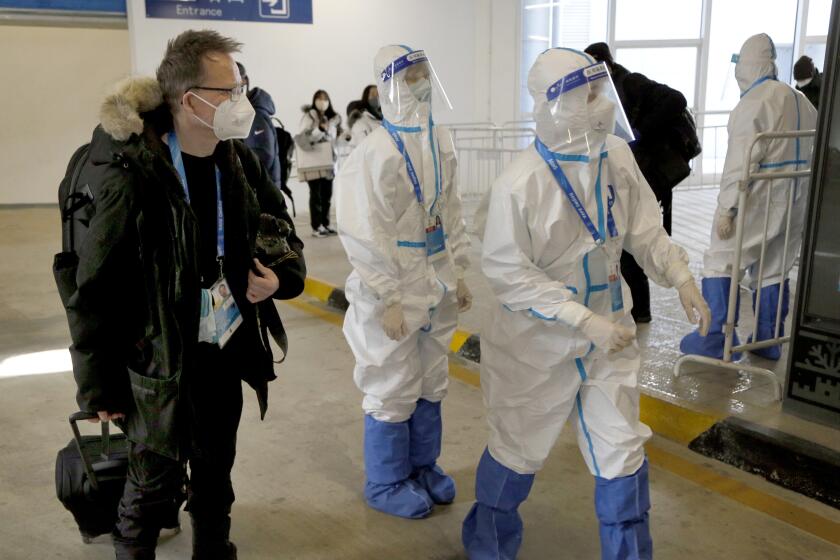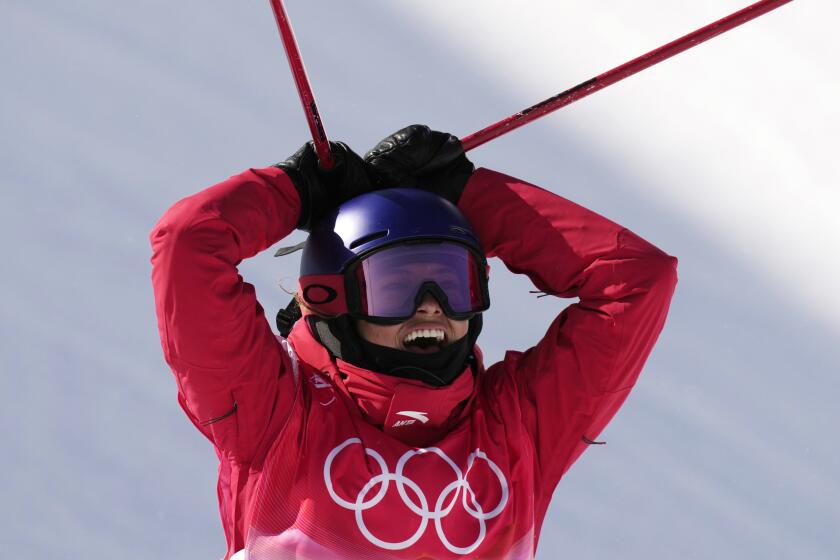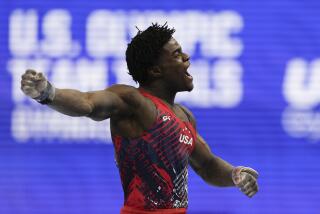David Wise takes silver, Alex Ferreira wins bronze for U.S. in freeski halfpipe
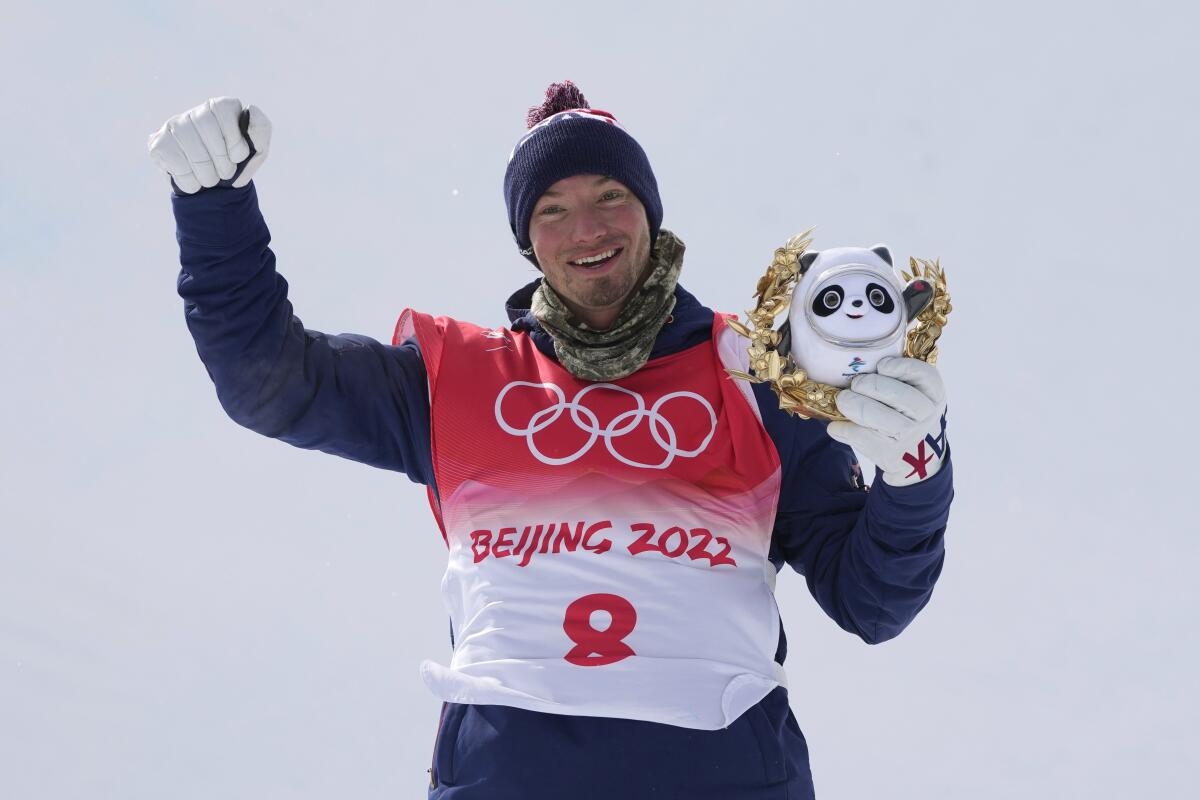
- Share via
ZHANGJIAKOU, China — Call it luck. Maybe it’s skill. Whatever it was behind the podium at Saturday’s men’s freeski halfpipe final, the result looked familiar.
The same three medalists from Pyeongchang conquered windy conditions at Genting Snow Park to climb the podium again, led by New Zealand’s Nico Porteous, who dethroned two-time gold medalist David Wise to upgrade a bronze medal for his first Olympic gold.
Wise medaled for his third consecutive Games with silver, and Pyeongchang silver medalist Alex Ferreira took bronze.
All three left with relieved smiles, just content to overcome wind that blew plumes of snow into the halfpipe throughout the competition.
“Being on the podium with such tough conditions, I honestly feel like I got the gold,” Ferreira said.
IOC President Thomas Bach is outraged by the way adults treated Russian figure skater Kamila Valieva. The age limit in the sport should be raised.
With windchill, temperatures dipped to minus 27 degrees Fahrenheit.
As soon as he arrived for practice in the morning, Wise knew he had to revise his run. He begrudgingly ditched hopes for big 1620s and other secret tricks he prepared. He said it felt like he cooked a meal and didn’t get to share it with anyone.
Instead, he served an appetizer of back-to-back double cork 1260s on his first run. When he finished, he threw his arms out and leaned his head back with a laugh.
“Wow,” he said.
Winds postponed an Alpine race 75 miles south of Zhangjiakou, but halfpipers weren’t afforded any breaks. At 195 pounds, Wise said he benefited from his weight that helped him withstand the gusts. But it also means he can be tough on his equipment and when the cold froze the binding on his ski, his weight snapped the equipment on his second run.
Switching to a different pair on his third run left him “looking lost,” he said, despite hopes to challenge Porteous.
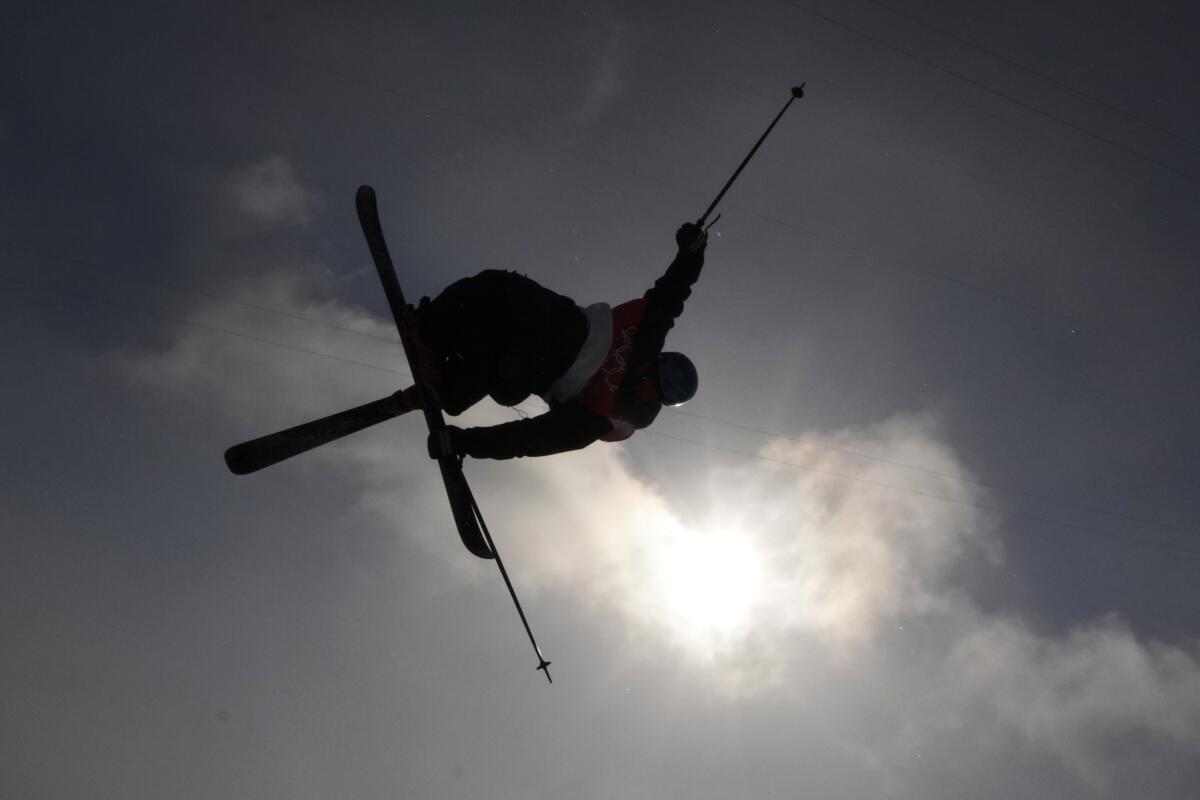
Porteous won with a first run that included back-to-back double cork 1620s, a tricky combination the 20-year-old has mastered since becoming the first to land it at the 2021 X Games. No matter how the wind blew, it was clear the youngest rider in the field earned the gold with those tricks, Wise said.
Ferreira credited Porteous’ new tricks for helping him break out of a three-year post-Olympic slump.
The 27-year-old said he felt stagnant after winning silver in Pyeongchang. The excitement from the Games had faded. He had an Olympic medal — a symbol of a lifelong goal — but he was left wondering what it was all for.
Times reporters covering the Beijing Olympics look back at the unique challenges they’ve faced over the last three weeks living in the closed loop.
The funk only continued when he crashed two years ago and the whiplash in his neck left him with searing paint. It wasn’t until nine months ago that he got surgery to address two pinched nerves in his spine.
“I’m just happy to be back competing alive,” Ferreira said.
Ferreira and Porteous mentioned luck as a possible reason why the Pyeongchang podium repeated itself in Beijing. But they also cited experience to handle the bright Olympic spotlight and adjust to things like winds that blew competitors off their lines.
Wise returned for his third Olympics after shattering his femur in 2019, the latest in a list of injuries that has grown over his professional career.
China’s Eileen Gu continued to soar at the Winter Olympics by winning gold in the women’s freestyle ski halfpipe Friday.
While he wishes he still had springy cartilage between his knees to cushion his landings and slightly more space between the vertebrae in his back, the 31-year-old father of two isn’t trading those physical advantages for the mental tricks he’s picked up that helped him find the podium again Saturday.
“You cannot put a price on experience,” Wise said before the final. “Because you learn how to let go of pressure, and how to just enjoy the ride.”
More to Read
Go beyond the scoreboard
Get the latest on L.A.'s teams in the daily Sports Report newsletter.
You may occasionally receive promotional content from the Los Angeles Times.

